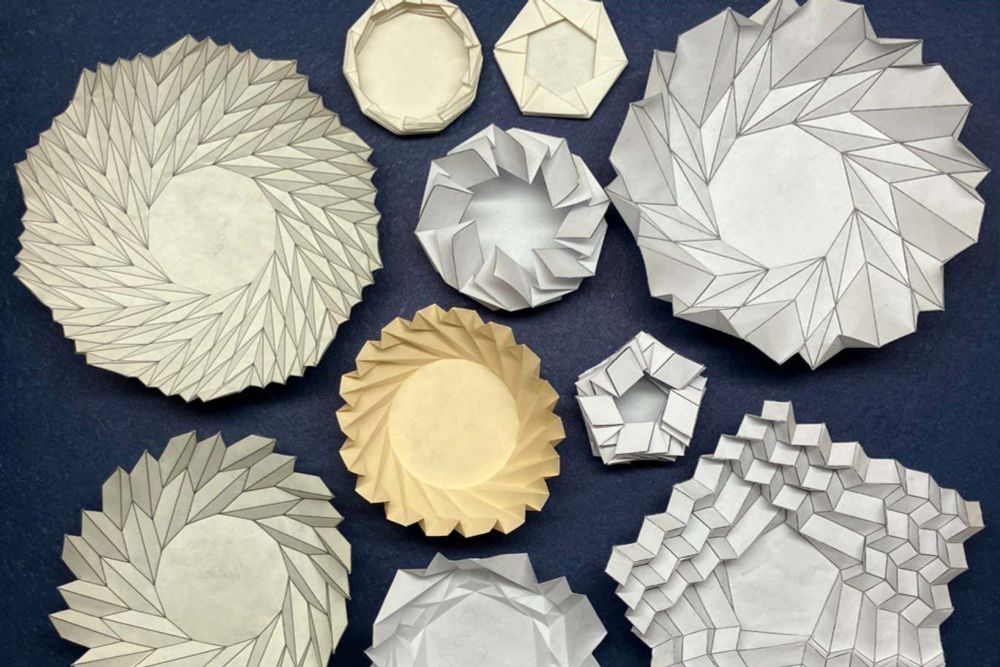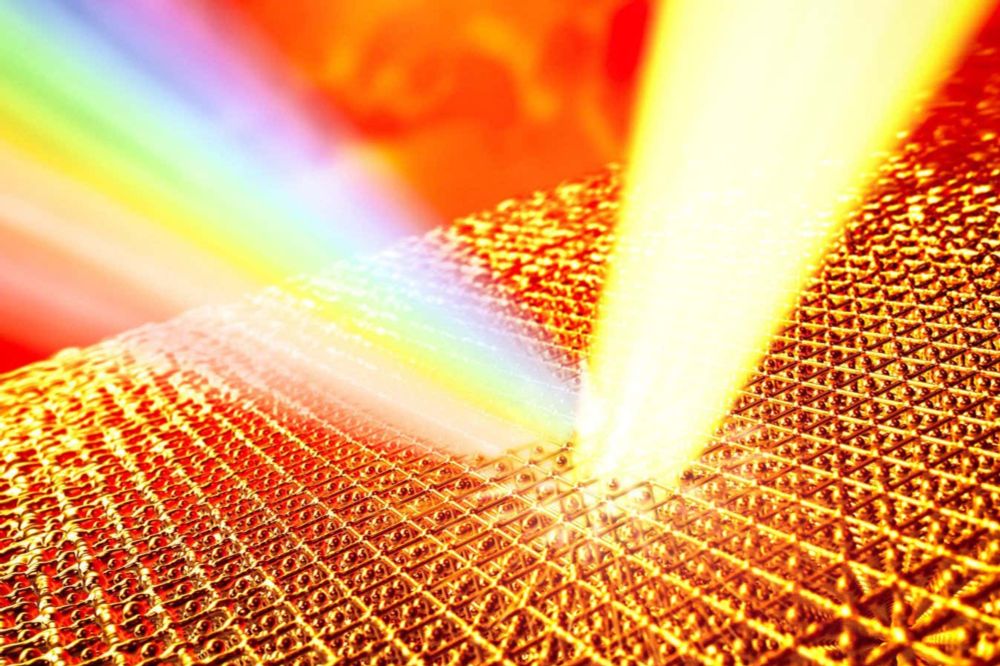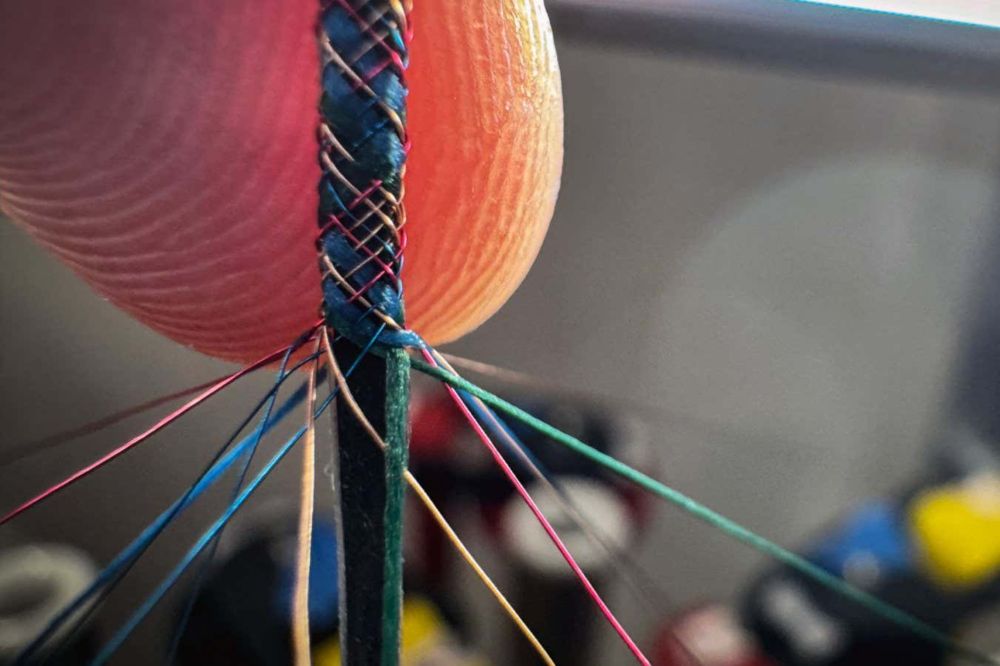But cold fusion, as it was known, was soon dead in the water after failed replications.
Now, a new experiment has resurrected its ghost ☢️
www.newscientist.com/article/2493...

But cold fusion, as it was known, was soon dead in the water after failed replications.
Now, a new experiment has resurrected its ghost ☢️
www.newscientist.com/article/2493...

www.newscientist.com/article/2493...

www.newscientist.com/article/2493...
This jacket gets thinner when you sweat and puffs up when your skin is dry, meaning you can wear it come rain or shine.
www.newscientist.com/article/2492...

This jacket gets thinner when you sweat and puffs up when your skin is dry, meaning you can wear it come rain or shine.
www.newscientist.com/article/2492...
www.newscientist.com/article/2492...

www.newscientist.com/article/2492...
www.newscientist.com/article/2491...

www.newscientist.com/article/2491...
New observations of K2-18b can't find any strong evidence for the apparent biosignature that got many excited.
www.newscientist.com/article/2489...

New observations of K2-18b can't find any strong evidence for the apparent biosignature that got many excited.
www.newscientist.com/article/2489...
www.newscientist.com/article/2489...

www.newscientist.com/article/2489...
*as long as you do it very, very quickly.
www.newscientist.com/article/2489...

*as long as you do it very, very quickly.
www.newscientist.com/article/2489...

Scientists have found evidence of tectonic plate-like activity hundreds of millions of years further back, at 3.5 billion years.
(plus the earliest known reversal of Earth's magnetic core!)
www.newscientist.com/article/2488...

Scientists have found evidence of tectonic plate-like activity hundreds of millions of years further back, at 3.5 billion years.
(plus the earliest known reversal of Earth's magnetic core!)
www.newscientist.com/article/2488...
The strange story of the horsetail plant, and its unique ability to distil water up its stem, could tell us all sorts of fascinating things about what Earth was like billions of years ago
www.newscientist.com/article/2487...

The strange story of the horsetail plant, and its unique ability to distil water up its stem, could tell us all sorts of fascinating things about what Earth was like billions of years ago
www.newscientist.com/article/2487...
Last month, astronomers said they'd found "strong evidence" of alien life.
They've now reanalysed the data and found more possible molecules that fit the data.
www.newscientist.com/article/2480...

Last month, astronomers said they'd found "strong evidence" of alien life.
They've now reanalysed the data and found more possible molecules that fit the data.
www.newscientist.com/article/2480...
It *might* one day help doctors predict disease, but it's unclear whether it ever can without breaking the law.
www.newscientist.com/article/2479...

It *might* one day help doctors predict disease, but it's unclear whether it ever can without breaking the law.
www.newscientist.com/article/2479...
What would we need for those claims to be verified?
More work from independent groups, more data and a real look at non-biological alternatives, which could take years, or forever.
www.newscientist.com/article/2477...

What would we need for those claims to be verified?
More work from independent groups, more data and a real look at non-biological alternatives, which could take years, or forever.
www.newscientist.com/article/2477...
www.newscientist.com/article/2471...

www.newscientist.com/article/2471...
www.newscientist.com/article/2471...

www.newscientist.com/article/2471...
And it's being tested on Canadian and US soldiers right now, in the Arctic.
www.newscientist.com/article/2470...

And it's being tested on Canadian and US soldiers right now, in the Arctic.
www.newscientist.com/article/2470...
It's butterflies all the way down 🦋
www.newscientist.com/article/2470...

It's butterflies all the way down 🦋
www.newscientist.com/article/2470...
🌑 The southern-most point ever visited
🌑 A hopping robot entering a crater w/ permanent shadows (for the 1st time)
🌑 An asteroid mining mission
🌑 A rover with a tiny cute ant-sized rover on its back
www.newscientist.com/article/2469...

🌑 The southern-most point ever visited
🌑 A hopping robot entering a crater w/ permanent shadows (for the 1st time)
🌑 An asteroid mining mission
🌑 A rover with a tiny cute ant-sized rover on its back
www.newscientist.com/article/2469...
www.newscientist.com/article/2469...

www.newscientist.com/article/2469...
But that doesn't mean scientists aren't still considering a space mission to study it up close!
(The chance of a moon impact has also quadrupled, at 1.2%)
www.newscientist.com/article/2469...

But that doesn't mean scientists aren't still considering a space mission to study it up close!
(The chance of a moon impact has also quadrupled, at 1.2%)
www.newscientist.com/article/2469...

Could this lead to fully AI-designed games? Probably not anytime soon.
www.newscientist.com/article/2469...

Could this lead to fully AI-designed games? Probably not anytime soon.
www.newscientist.com/article/2469...
Fast forward to today, and we have mindboggling detail - 3D atmospheres, actual wind speeds (70,000 km/h!) and altitude-dependent elements!
www.newscientist.com/article/2468...

Fast forward to today, and we have mindboggling detail - 3D atmospheres, actual wind speeds (70,000 km/h!) and altitude-dependent elements!
www.newscientist.com/article/2468...

